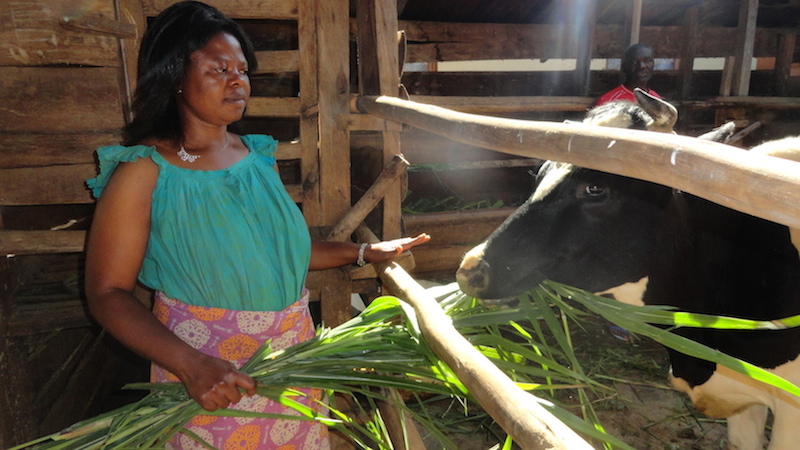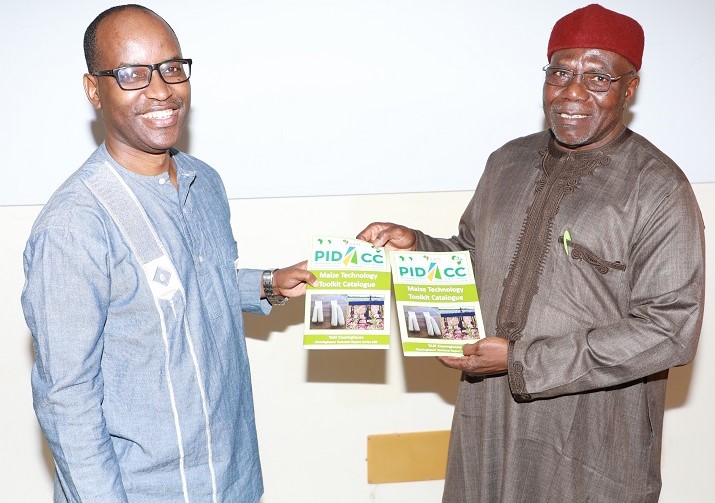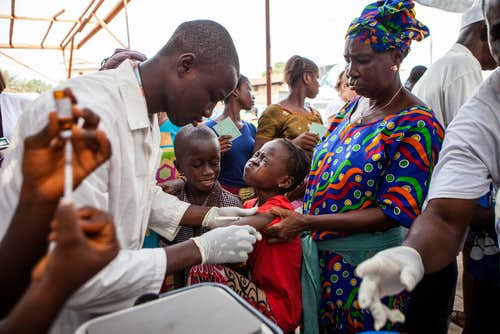By Greg Odogwu
We must connect the dots between climate change, water scarcity, energy shortages, global health, food security and women’s empowerment. Solutions to one problem must be solutions for all. – Ban Ki-moon.
There is always a sense of urgent reality when people who directly experience the impacts of climate change discuss the matter. But there is definitely a greater sense of clear and present danger when women who feel these impacts rend their voices to the conversations. This is because naturally women are the ones who feel the direct impact of domestic challenges.
Climate change has become a domestic concern especially in the developing world.
Recently in Abuja, some Nigerian women told their stories to the world. Organized by the Women Environmental Program with the support of Women’s Environment and Development Organization, the event was under the project: Regional Actions for Climate Justice towards COP 21. As the world prepares for a historic climate change conference in Paris in December, it is apt to mobilize women for climate leadership and influence.
As I watched the determination of these women in their demand for climate justice, I could not help wondering what would be their reaction if the worst fears of climate activists become the reality during COP 21. What if world leaders and scientists who shall be negotiating over our collective destinies in Paris fail to reach an agreement on the document which replaces the Kyoto Protocol?
What would be the reaction of these women, who plan to arrive en masse in France – trust women, they vowed that even if it means trekking to Paris they would do that to tell world leaders how serious they are.
One can only shudder at the contemplation of a worst case scenario in Paris. Will the women occupy the streets of Paris with their most potent weapon – their bare womanness? Well, under the European cold, they may have to resort to other weapons. Nevertheless, Nigerian women in the delegation should go and consult historians to know about the Aba Women Riot of 1929, because the strategies that moved the colonial masters might just be what the women need to move world leaders of today.
Women and girls of all ages, in all diversity and from every region of the world, are now speaking with one voice. What are their concerns and what are they demanding?
Women are gravely concerned about the lack of just and sufficient action on climate change by the world’s leaders. They are concerned about the increasing number of disastrous mega storms that are killing people, eradicating species, and destroying ecosystems and livelihoods.
They are concerned about sea-level rise and disappearing land masses, in addition to the serious environmental and human casualties caused by droughts, desertification, ocean acidification, water salination, crop failures, air pollution, oil spills, plastics and other pollution, glacier melt, record cold summers and warm winters, and out-of-season cyclones and tsunamis.
They are concerned about all women and the communities and environments in which we live, including those of them from indigenous lands and oceanic societies who have contributed the least to climate disruption but who are suffering the greatest impacts first and most intensely.
They are concerned that governments of the world are moving too slowly, with too little effort, and without the ambition, commitment or financing that it will take to stop and reverse the global climate crisis. They are stunned, upset and outraged that our future, and the future of our children, grandchildren, great grandchildren, and of all living beings and ecosystems is being abandoned for short-term self-interest and lack of vision, leadership and political will.
They are determined to refuse to allow corporate control of the planet, their rights, or sanction a world that prioritizes growth and greed over human rights, decent and equal work, healthy ecosystems and a just distribution of wealth. They aver that as women and girls, they are not only facing severe impacts, but they are central to the implementation of real solutions that produce real results.
Women therefore demand that they must be full and equal partners in the fight to combat global climate chaos.
Ms Priscilla Achakpa the Executive Director of WEP was able to voice these feminine resolve, “Together, we are creating a mass movement for climate justice. Together, we pledge to take action. We call on all women, all girls and all of our allies to join us in this pledge, to join our Women’s Global Call for Climate Justice and our 2015 Campaign of six actions, on six themes, over six months towards the UN Climate Meeting this December in Paris. We will talk, sing, shout, stand, and sit. We will lobby, hold vigils, protest, blockade, and barricade. We will take action in the smallest villages, the largest cities, the highest mountains, in the oceans, and at the UN Climate Conference.”
During the WEP women stories event, some rural women from different regions in Nigeria told the stories of how their yields in farms kept dwindling without them knowing the cause. These low yields are usually due to false starts in rainfall, and saturation of soil through flooding.
There are some issues that came up through this forum which should be noted by the relevant stakeholders if we can make impact in mitigating the effects of climate change. It becomes obvious that women are not properly mainstreamed in these matters in Nigeria.
The last administration of former President Goodluck Jonathan used to pride itself over the appointment of women into political appointments, which is supposed to be a strategy to make developmental deliverables trickle down to the women who make up a large chunk of the grassroots. To be fair, he did well in appointing women into key political positions. But it must be noted that the environmental sector did not feel the political feminine leadership.
The fact is that as long as climate change and the environment is concerned, only knowledgeable women in the sector can make a difference. In this sector, capacity is critical in order to make reasonable impact. A clear example is the reality of the last two environment ministers who were women, and yet could not make any noteworthy impact.
In fact, the immediate past minister of environment is well known for her lack of capacity, and “cluelessness” in the sector, which obviously added to her fumbles, for instance the 9.2billion Naira clean cook stoves brouhaha.
Secondly, women and gender based NGOs should consciously embrace environment and climate change issues in their advocacy projects because as it stands today, there are few of such platforms specializing on these issues. Unlike areas like HIV/AIDS, child/girl education, etc., climate change and the environment have very few NGOs engaged in it.
Thirdly, our institutions have to make a conscious effort to help women take up expert positions in climate change leadership. For instance, no woman is seen in Nigeria’s negotiating team to the COPs; and none is even visible in the backup. This trend has to be consciously changed not just as an all-inclusive affair, but as a strategic development strategy in global engagements.
It is very easy to see that when other countries sit together to discuss women-in-climate change and environment issues, Nigeria is scarcely represented. And as the world prepares to start implementing the Sustainable Development Goals this September, Nigeria may find itself outsourcing many fundamental processes which would have been easy for us to close if we have a formidable cadre of women environmentalists and development experts.
The truth is that women must not be highly educated to affect development or grow a nation’s real sector. All they need is a little bit upgrade of their capacity and some hands-on coaching and training and they are ready to serve their communities.
Nigeria can learn from India in its Barefoot College project, which raises unschooled rural women into technical experts and innovators overnight.











